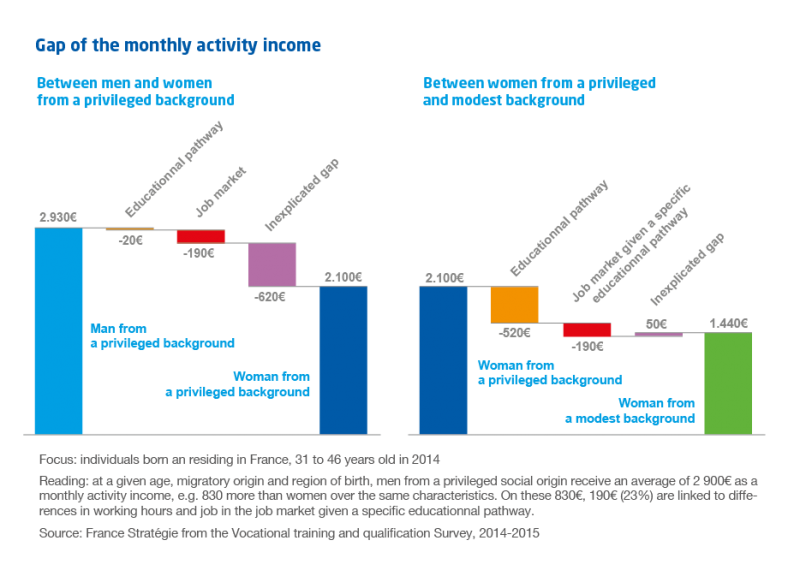
From the characteristics studied, the socio-economic background of parents turns out to be the most determining factor in terms of activity income. On average, the quarter of people from a privileged background earns 1,100 € net more per month than the quarter of people from a disadvantaged background, with comparable migratory and territorial origins. This is almost twice as much as the gap between men and women (600 €). For a given social background, income differentials based on place of residence during adolescence (region, urban vs. rural), and especially migratory ascendancy, are lower in importance. Regardless, gender, family and territorial environment are, globally, weak predictors of individuals' income : there is significant income heterogeneity between individuals with identical observed characteristics. For instance, 11% of women from disadvantaged backgrounds earn more than half of the men from a privileged background.
Income differences between social origins are primarily due to to different educational paths particularly on degree obtained (more than the speciality chosen or the access to a prestigious school (grande école). However, income differences between men and women are mainly driven by labour market background more than educational pathway (characteristics of the job and the company, the working time, the employment rate). Finally, while the birth of children does not significantly increase the differences in earned income between social origins, it does explain nearly 60% of income differences between men and women.








